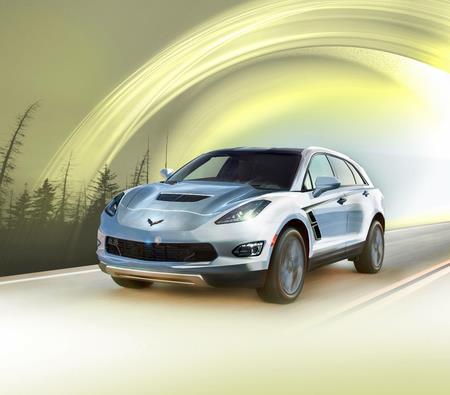
George Borke
|
|
3/31/2019 1:50 PM

|
 As a reporter in the Wall Street Journal’s Detroit bureau, I’ve had a front-row seat while General Motors CEO Mary Barra shed the automaker’s money-losing operations in Europe, invested billions in self-driving technology and electric vehicles, and killed off unprofitable vehicle lines. The 57-year-old engineer, however, has one more task to cross off her list before I completely buy into her vision for remaking the General: Fix Corvette.
As a reporter in the Wall Street Journal’s Detroit bureau, I’ve had a front-row seat while General Motors CEO Mary Barra shed the automaker’s money-losing operations in Europe, invested billions in self-driving technology and electric vehicles, and killed off unprofitable vehicle lines. The 57-year-old engineer, however, has one more task to cross off her list before I completely buy into her vision for remaking the General: Fix Corvette.
Corvette sales have slumped in recent years as the lone two-seat model ages and its core buyers—baby boomers—have more options. A mid-engine Vette, due later this year, could revive interest, but it’s a tiny blip compared with the overhaul the brand truly requires. With each passing year, it is increasingly evident that the Corvette needs an SUV variant.
GM declined to make executives available for an interview, but a spokeswoman sent along a Detroit News story that included a mock sketch of a Corvette SUV and a line that indicated the newspaper proposed a hit. “Everywhere we went, car fans loved the idea.”
Many Corvette fans, however, would surely be appalled. For 66 years, the Corvette has meant one thing: a world-beating two-seat sports car. Ed Welburn, GM’s former design chief, told me in a recent interview that the narrowness of the car’s mission is key to its success. “Beyond any other at GM, the Corvette team is so focused on offering the Vette at that price point. I simply don’t see a Corvette SUV happening.”
Adam Jonas, a Morgan Stanley auto analyst and a close watcher of Detroit and Silicon Valley, said GM considers the Corvette an “annuity,” meaning it pays consistent returns year after year without the costly headaches that come with having to renew a sprawling lineup, such as those of Buick or Cadillac. Jonas estimates the Corvette delivers $300 million in annual operating profit.
Why mess with a good thing? Well, because competitors have messed with good things and come away with greater profits. When Sergio Marchionne ran Fiat Chrysler, he spun off Ferrari to the tune of $10 billion in an IPO. Trading with the ticker symbol RACE, it’s now worth $25 billion—more than FCA itself. Investors, Jonas suggested in a recent note, should wonder why Barra is not working to double or triple the estimated $2 billion the Corvette is presently worth.
Porsche, controlled by Volkswagen, probably makes for an even closer comparison. It faced the wrath of 911 purists when it introduced the Cayenne, much like GM would with a Vette SUV. Yet the blowback hasn’t hindered Porsche’s success: The Cayenne now outsells the 911 by a margin of more than two to one, and the brand now earns $3 billion to $4 billion in profits annually. The Corvette brand, Jonas estimates, nets a sliver of that, with profits in the hundreds of millions, even though its respectable 15-percent operating margin is about in line with Porsche’s earnings on a percentage basis.
Those profits line investors’ pockets and are rolled into new product. So if you’re wondering where Porsche got the money for the sexy Taycan electric four-door coupe due next year, not to mention the ever increasing array of 911 variants, look no further than the $18 billion the brand has earned over the past half decade, mostly on the backs of the Cayenne and Macan crossovers.
In its admirable attempt to preserve the purity of its halo car, GM is not only leaving money on the table but is also hastening the demise of its most iconic asset. To conquer the battle taking place among top performance brands, GM needs to build a Corvette SUV. I’m guessing it’s a matter of when, not if.
|
|
|
|